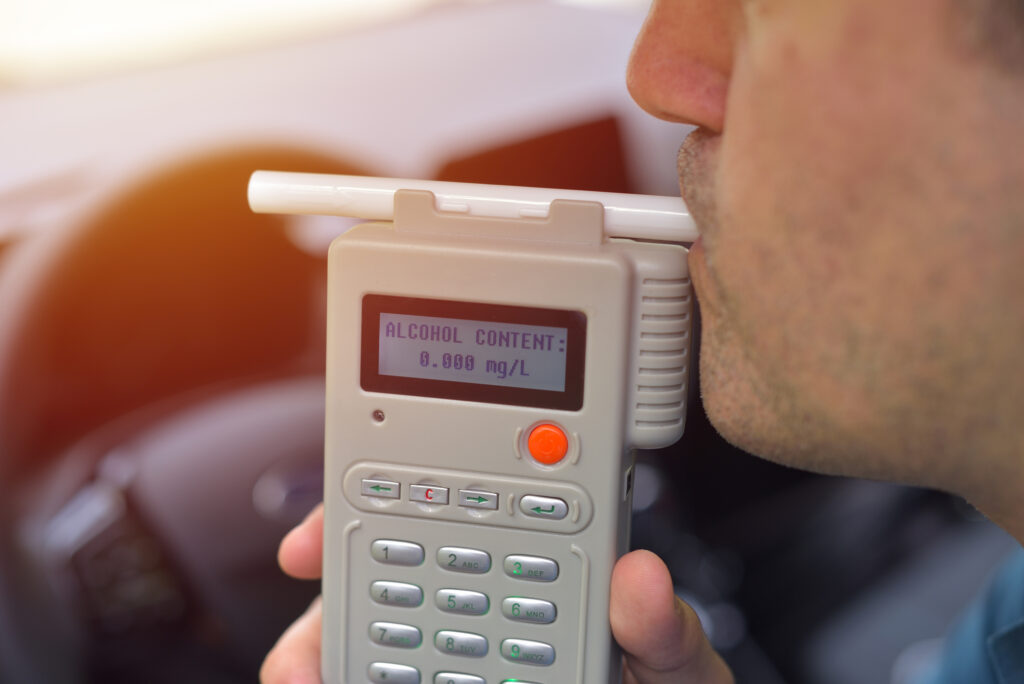Delaware’s Ignition Interlock Program (IIP) plays a crucial role in the state’s effort to curb driving under the influence (DUI) offenses. This program mandates the installation of an Ignition Interlock Device (IID) in vehicles owned or operated by individuals convicted of DUI-related offenses. Understanding the requirements and process associated with the program is essential for drivers facing a DUI conviction, as non-compliance can lead to further legal consequences.
Understanding the Ignition Interlock Device (IID)
The Ignition Interlock Device (IID) is a breathalyzer installed in a vehicle to prevent the engine from starting if the driver’s blood alcohol concentration (BAC) exceeds a pre-set limit. In Delaware, this limit is typically set at 0.025%, which is lower than the legal driving limit of 0.08%.
The IID requires the driver to provide a breath sample before starting the vehicle and may also require additional samples at random intervals while driving, known as rolling retests. If the device detects a BAC above the threshold, the vehicle will not start, or an alarm may sound during a rolling retest, prompting the driver to stop and provide a clean sample.
Eligibility and Requirements for the Ignition Interlock Program
Delaware’s Ignition Interlock Program is mandatory for certain DUI offenders and voluntary for others under specific conditions. First-time offenders with a BAC below 0.15% may be eligible to voluntarily participate in the program to reduce their license suspension period.
For mandatory participants, the duration of the IID requirement varies based on the severity of the offense. Drivers who voluntarily choose to participate in the program to regain driving privileges earlier must meet specific criteria, including completion of a DUI treatment program and maintaining a clean driving record.
Exemptions and Special Cases
There are certain exemptions to Delaware’s Ignition Interlock Program. For instance, if the convicted individual does not own a vehicle or has a medical condition that makes it physically impossible to use the IID, they may apply for an exemption. However, obtaining such an exemption requires thorough documentation, and the individual may still face other restrictions, such as a longer license suspension period.
The Process of Installing and Maintaining the IID
The process of installing an IID in Delaware involves several steps, beginning with selecting a state-approved IID provider. The Delaware Division of Motor Vehicles (DMV) provides a list of approved IID providers that meet the state’s standards. Once a provider is selected, the convicted driver must schedule an appointment for installation. The installation typically takes about one to two hours and must be completed before the driver’s license can be reinstated.
After installation, the driver must return to the provider periodically for device calibration and data downloads. These appointments usually occur every 30 to 60 days and are critical to ensure the IID is functioning correctly and to review the driver’s compliance with the program.
Costs Associated with the Ignition Interlock Program
The cost of participating in Delaware’s Ignition Interlock Program can be significant. Drivers are responsible for all expenses related to the IID, including installation, maintenance, calibration, and removal. In addition to these financial requirements, drivers may be required to pay a license reinstatement fee and any applicable fines or fees related to their DUI conviction.
Compliance and Consequences for Non-Compliance
Compliance with the Ignition Interlock Program is critical, as failure to adhere to the program’s requirements can result in severe consequences. Non-compliance includes actions such as failing to install the IID, attempting to drive a vehicle without an IID, tampering with the device, or failing to attend scheduled calibration appointments. If a driver violates any of these conditions, the DMV or court may extend the duration of the IID requirement, impose additional fines, or revoke the driver’s license.
In cases of severe or repeated non-compliance, the court may impose further penalties, including mandatory jail time. Additionally, any attempts to bypass or tamper with the IID are treated as serious offenses and can lead to criminal charges. Participants need to understand the importance of complying with all aspects of the program to avoid these harsh consequences.
Completing the Program and IID Removal
Upon successful completion of the Ignition Interlock Program, the driver can request the removal of the IID. To be eligible for removal, the driver must have met all program requirements, including the completion of the mandated IID period without any violations. The removal process involves scheduling an appointment with the IID provider to have the device uninstalled. Once the IID is removed, the provider will submit a report to the DMV confirming the successful completion of the program.
After the IID is removed, the driver may be required to undergo a final review by the DMV to ensure all conditions of the DUI sentence have been fulfilled. If the review is satisfactory, the driver’s full driving privileges will be restored. However, it is important to note that any subsequent DUI convictions may result in more severe penalties, including a longer IID requirement or permanent license revocation.
Seek Legal Guidance
Delaware’s Ignition Interlock Program is a critical component of the state’s efforts to reduce DUI-related accidents and fatalities. By requiring certain DUI offenders to install an IID, the program aims to prevent individuals from driving under the influence and promote safer roadways.
Understanding the requirements and process of the program is essential for anyone facing a DUI conviction in Delaware. For those required to participate, adhering to the program’s guidelines is not only a legal obligation but also a crucial step toward regaining full driving privileges and moving forward after a DUI conviction.
If you’re facing a DUI conviction and Delaware’s Ignition Interlock Program, reach out to Delaware DUI Defender today by calling (302) 678-8700 to schedule a consultation with us.





 CALL US NOW
CALL US NOW

